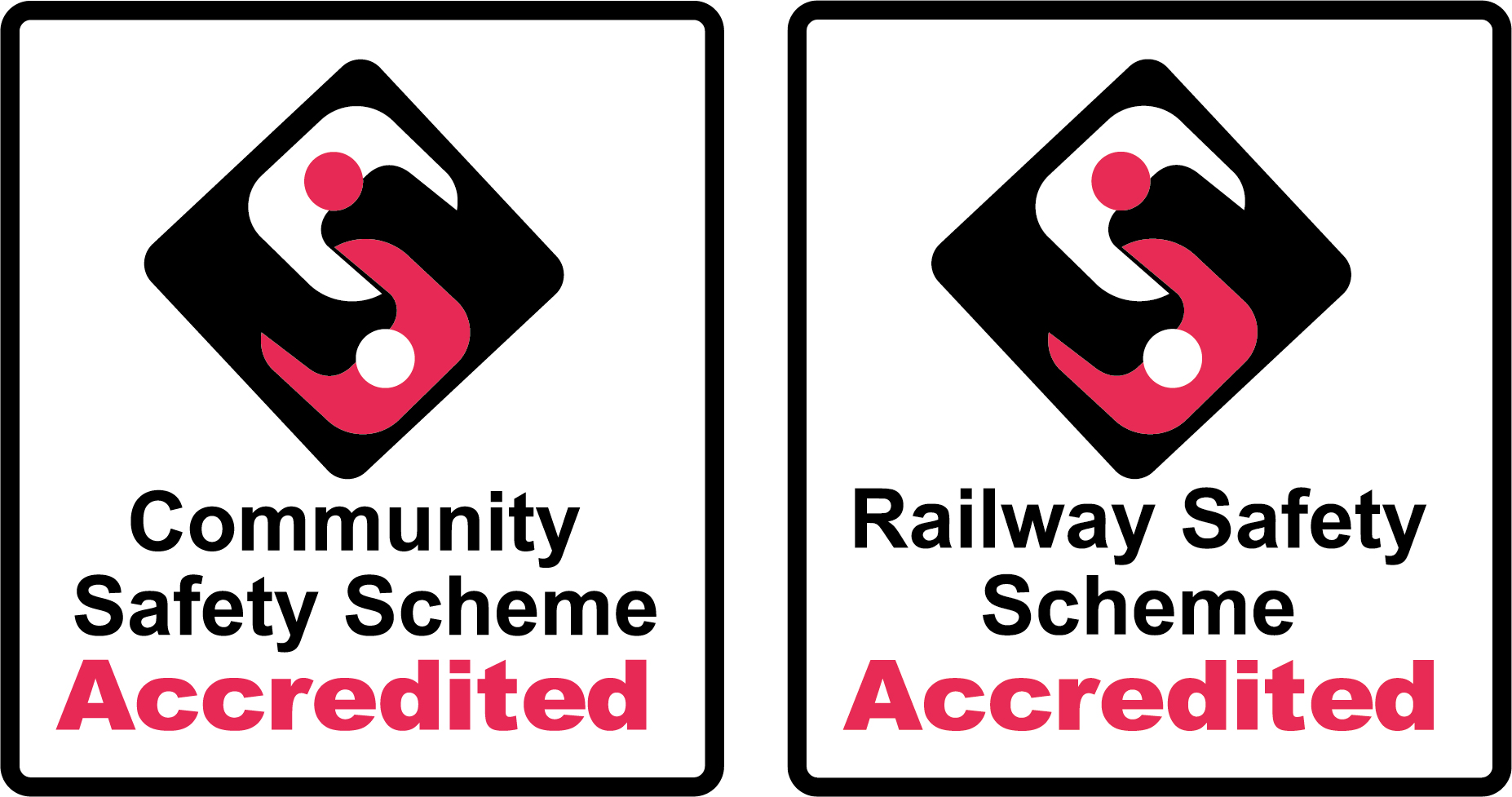
CSAS & RSAS
The Community Safety Accreditation Scheme (CSAS) and Railway Safety Accreditation Scheme (RSAS) is a voluntary scheme contained in Section 40 of the Police Reform Act 2002, which came into operation in 2004. It creates a framework for public and private bodies to work in partnership with the police, providing an additional uniformed presence in communities and on the rail network to assist in reducing criminality and anti-social behaviour and contributing to community safety.
The Police Service and private security sector are increasingly working together to use the CSAS & RSAS schemes to extend the ‘police family’ and keep communities safe.
CSAS accredited security officers work closely with Police Forces on things that include day and night-time patrols to protect shopping centres and businesses and helping to control and direct traffic at major events, such as local festivals and community shows.
The role of assessing private sector companies seeking approval to run a CSAS scheme is carried out on behalf of the National Police Chiefs’ Council by Police CPI. Police CPI carries out checks to establish whether security companies are ‘fit and proper’ to exercise CSAS or RSAS powers and then completes an assessment with recommendations to Chief Constables in the area that the scheme will operate. Currently more than 120 private security companies have been assessed by Police CPI to run a CSAS.
How CSAS can help
Since CSAS was included in Section 40 of the Police Reform Act 2002 some Police Forces have embraced CSAS, others are using it in a limited way, and others, not at all.
What are the powers typically used for?
- deter and reduce crime, disorder and anti-social behaviour in town and city centres
- assist with traffic management at major community events
How CSAS can help in town and city centres
- combat crime and disorder, public nuisance and other forms of anti-social behaviour
- increase uniformed presence on the streets
- save valuable police time in community safety dealing with low-level crime and disorder
- contribute to community safety by helping the public and promoting public safety
- with neighbourhood policing, often working with designated beat officers to increase both accessibility and visibility in hotspot areas
- achieve key performance indicators on fear of crime, feelings of public safety and public satisfaction levels
- capitalise on the skills, information and intelligence captured by those already engaged with the community
- contribute to the PREVENT aspect of the Government’s Counter Terrorism strategy, such as in major shopping centres and universities
- promote greater business involvement and partnership working with the police, and allowing the police to influence the training of businesses, such as security companies
- improve the physical appearance and management of local areas
- work towards social cohesion and community regeneration with medium and long term planning
How CSAS can help with traffic management?
- limit traffic congestion surrounding an event allowing faster movement of drivers and maintaining a peaceful and organised entry and departure
- allow coordination of on-site traffic with highway traffic which reduces disruption in the local area and for local residents
- enable traffic issues to be dealt with rapidly, minimising the impact on the event and local community
- assist blue-light emergency services to move more effectively and safely
What do the Police Forces who use CSAS say about it?
They say that it reduces low level crime and disorder, public nuisance and other anti-social behavior, whilst assisting police officers by easing demands on their time and resources.
Case study: How Poole-based SWL Security help police in reducing crime
Case study: How CSAS gives Kingston University added security
Case study: Four days when CSAS helped the police & Batman
Case study: York-based Eboracum’s Street Rangers
Case study: Watford-based The Combined Services Provider Limited
Case study: Coventry-based Cash and Traffic Management
For further information contact Simon Newman